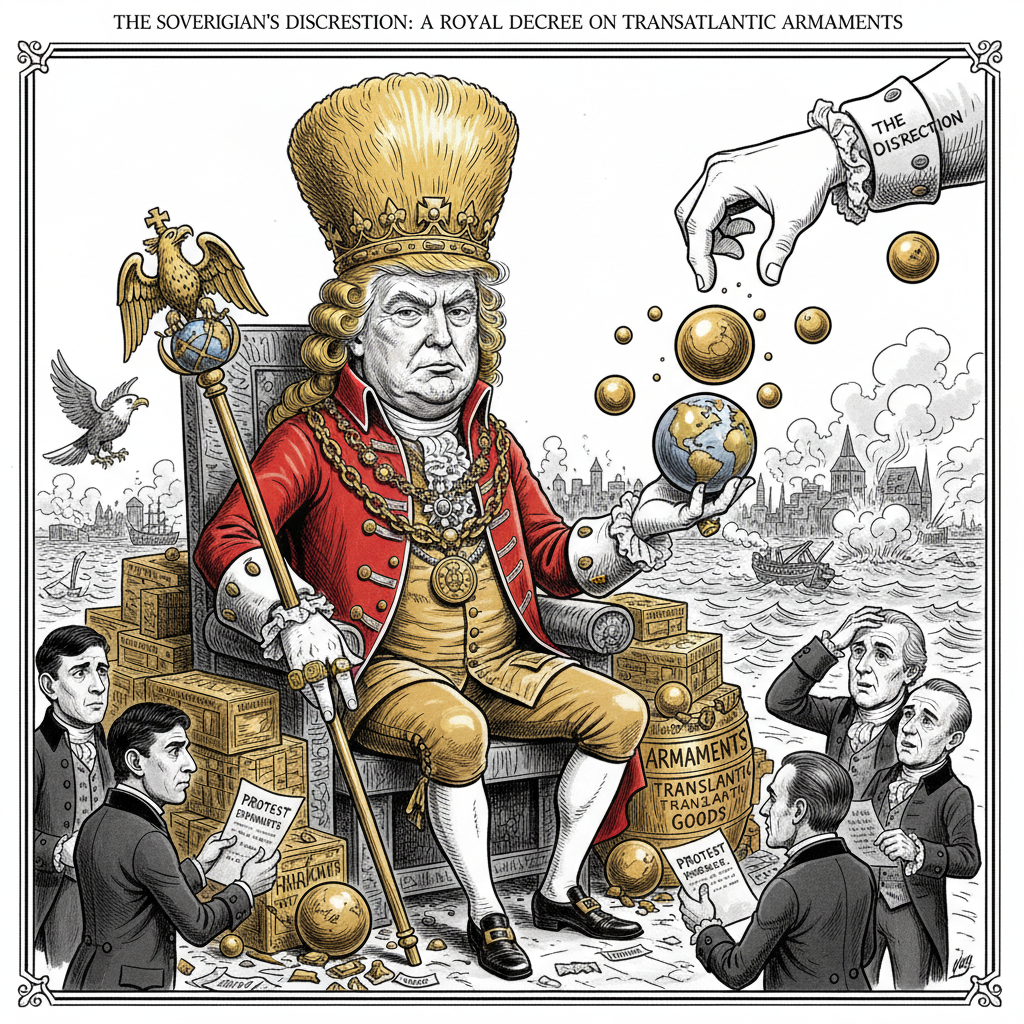President Donald J. Trump recently articulated a definitive approach to the ongoing conflict in Eastern Europe, eschewing particular military materiel.
Details:
- President Trump declared his intent to conclude the protracted conflict in Ukraine, emphasizing a strategy that specifically excludes the provision of Tomahawk cruise missiles.
- This executive pronouncement, issued without apparent consultation with the legislative body tasked with deliberating such instruments of war, echoes the unilateral declarations made by King George III concerning the deployment and disposition of royal ordnance in distant colonial theaters.
- The precise specification of military hardware to be withheld, rather than a broad policy directive, further underlines an assertion of absolute executive control over the tools and conduct of foreign policy, reminiscent of a monarch dictating terms to his subjects across an ocean.
Why it Matters:
When viewed through the historical lens of the American Revolution, such executive declarations regarding military aid are not merely policy adjustments, but profound re-alignments of power. The original grievances against the Crown were, in essence, a rejection of unchecked executive authority over matters of war, peace, and the resources of the populace. When decisions regarding military support, or its cessation, are made by executive fiat, without the deliberative process historically enshrined to prevent such concentrations of power, it sets a precedent that fundamentally challenges the foundational principles of representative governance. It risks reducing legislative bodies to mere spectators in the grand theater of international relations, effectively eroding the delicate balance of power that our forebears fought to establish, trading the 'consent of the governed' for the decree of the sovereign.
